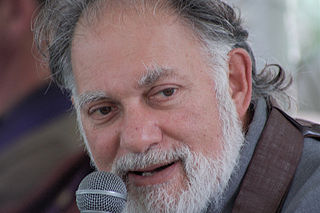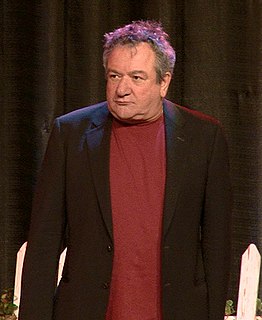A Quote by Sandra Cisneros
Every writer I admire is my teacher. If you look at it, and if you care to read carefully enough and to read and reread a text, you teach yourself something about craft.
Related Quotes
No one can teach writing, but classes may stimulate the urge to write. If you are born a writer, you will inevitably and helplessly write. A born writer has self-knowledge. Read, read, read. And if you are a fiction writer, don't confine yourself to reading fiction. Every writer is first a wide reader.
No one can teach writing, but classes may stimulate the urge to write. If you are born a writer, you will inevitably and helplessly write. A born writer has self-knowledge. Read, read, read. And if you are a fiction writer, dont confine yourself to reading fiction. Every writer is first a wide reader.
When you care about perfection, you care about an expectation. But there is also caring for where I am right now, for what's happening right now. When I spend time with students, they tell me that they've read something in a book or heard something from a teacher that they don't think they're living up to. And I tell them, “Take care of yourself right now. Befriend what's happening, not just who you're supposed to be or what the world should be like. This is where you are now. So how do you care for yourself this minute?
One of the things I do take some pride in is that if you had never read an article about my life, if you knew nothing about me, except that my books were being set in front of you to read, and if you were to read those books in sequence, I don't think you would say to yourself, 'Oh my God, something terrible happened to this writer in 1989.'
I didn't want to teach my kid how to read, so I used to read to him at night and close the book at the most interesting part. He said, “What happened then, daddy?” I said, “If you learn to read, you can find out. I'm too tired to read. I'll read to you tomorrow.” So, he had a need to want to learn how to read. Don't teach children how to read. Don't teach them mathematics. Give them a reason to want it. In school, they're working ass-backwards.


































